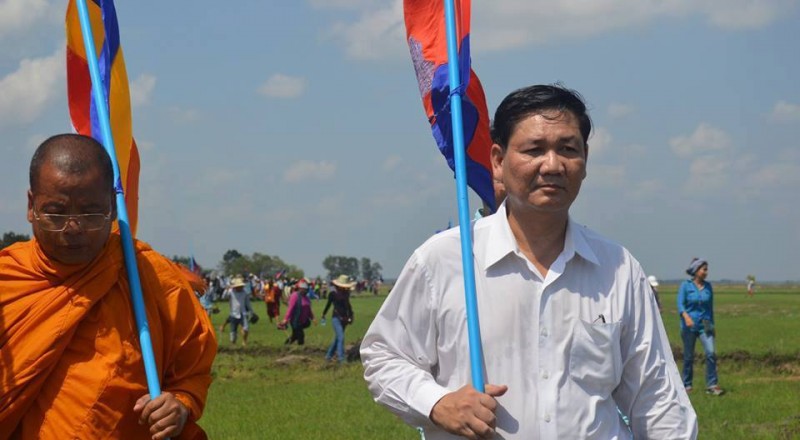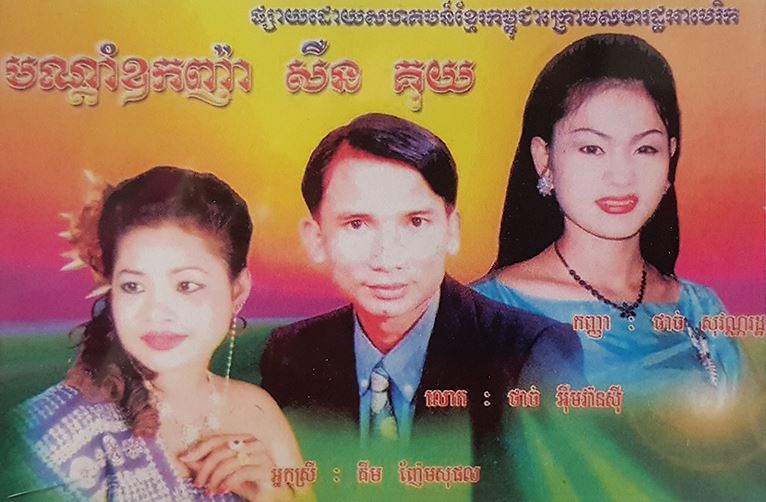Cambodia plans China-style internet firewall
‘National internet gateway’ includes ‘censorship angle’ that alarms NGOs
ថ្ងៃព្រហស្បតិ៍ ២រោច ខែភទ្របទ ឆ្នាំជូត ទោស័ក ព.ស.២៥៦៤ ត្រូវនឹងថ្ងៃទី៣ ខែកញ្ញា គ.ស.២០២០
Thursday 2nd Waning Moon of Poṭṭhapāda B.E.2564 equivalent to September 3, A.D.2020 Year of the Rat
Nikkei Asian Review
 Cambodia’s government will route all web traffic through a “national internet gateway” under plans that human rights advocates fear will see critical content blocked by a China-style firewall.
Cambodia’s government will route all web traffic through a “national internet gateway” under plans that human rights advocates fear will see critical content blocked by a China-style firewall.
The plans are laid out in a yet-to-be-signed sub-decree drafted in July and obtained by the Nikkei Asian Review.
The document states the national internet gateway will manage internet connections in the country to enhance “national revenue collection,” protect “national security” and assure “social order.”
The gateway will be managed by a government-appointed operator or operators, who will collaborate with the Ministry of Post and Telecommunications, the Telecommunication Regulator of Cambodia and “relevant authorities.”
Among the operator’s duties listed in Article 6 of the law is to work with the government to block certain types of content. The operator is “to take actions in blocking and disconnecting all network connections that affect safety, national revenue, social order, dignity, culture, traditions and customs,” according to a translation of the law.
Cambodia has seen a rapid increase in web usage in recent years, with internet subscriptions rising from 5 million in 2014 to 16 million last year, according to government statistics. Mobile subscriptions, meanwhile, hit 21 million in 2019.
Cambodia’s authoritarian regime, which dissolved the main opposition party in 2017, has moved increasingly to crackdown on online dissent.
More than a dozen people have been arrested, “re-educated” or jailed this year for comments critical of the government made on social media.
Ith Sothoeuth, media director of the Cambodian Center for Independent Media, said the vague language in the national gateway sub-decree left room for many interpretations that could impact freedom of expression.
“They could use it on Facebook, which in Cambodia is almost a substitute for the internet.”
The gateway appears similar to a 2015 proposal by the military junta in Thailand that was scrapped after a public backlash.
Licadho Naly Pilorge, the director of a Cambodian human rights NGO, called the plans alarming.
“This sub-decree would grant the Cambodian government broad and unrestricted powers,” Pilorge said, “enabling it to arbitrarily block free speech and deny access to information for a growing number of Cambodians online.
“The timing of this push for a national internet gateway, at a time when more and more Cambodians are being judicially harassed or jailed as a result of publishing and sharing opinions on social media platforms, is especially concerning.”
Under the plans, the gateway operator will be required to store all connection and traffic metadata for 12 months and submit regular reports to authorities.
Marc Einstein, chief analyst at Japan-based IT research and advisory firm ITR, said the proposed infrastructure would give authorities greater online visibility and control.
“Cambodia has been the Wild West for a while, in terms of how the internet is run and managed,” Einstein said, “and I think the government is trying to have a bit tighter control, in a similar way to what China does.”
Einstein added that while the plans would help tax collection and fight cybercrime, they also appear to have “a censorship angle.”
The proposed system’s potential impact on connection speeds is also a “legitimate concern,” he added.
The sub-decree requires the gateway operator to ensure “smooth operation without any interruption” and also make sure that the use of its equipment and network does not exceed 80% of capacity. However, more detailed conditions on quality standards would be set out in a prakas, a regulation added after a sub-decree’s adoption.
Internet service providers will be given 12 months to reroute their networks through the gateway after the sub-decree is signed.
Several ISPs contacted by Nikkei did not respond by press time. MPTC and TRC representatives also did not respond to requests for comment for this story.
According to its website, the MPTC held a meeting with stakeholders in August where officials said the gateway would boost revenue collection and the efficiency of the country’s internet connections.
They added that further discussions would be held to determine conditions around service quality and connection fees, which they promised would be low.
TRC spokesman Im Vutha told local newspaper the Phnom Penh Post earlier this year that the gateway plan aimed to “control internet usage and make it safer and more secure.”
Cambodia’s government has long faced criticism for alleged electronic snooping. In 2014, authorities announced a plan to install monitoring equipment in the networks of Cambodia’s mobile phone operators and ISPs.
The following year, the country adopted a telecommunications law that granted authorities sweeping powers to surveil citizens.
The government is also drafting a cybersecurity law, an initiative which is being aided by the U.S., which is helping to promote “global best practices,” said U.S. Embassy spokesman Arend Zwartjes.
Asked about the national gateway plans, Zwartjes said, “The human rights and fundamental freedoms that individuals have offline must also be protected online.
“A law that fails to balance Cambodia’s security needs with the needs of businesses and end-users could negatively impact foreign investment and reduce opportunities for Cambodia’s small-to-medium-sized technology companies — both within and outside Cambodia.”
Related
សូមគាំទ្រឧបត្ថម្ភ សហគមន៍ខ្មែរក្រោម Support KKC
សូមអរគុណដ៏ជ្រាលជ្រៅចំពោះសប្បុរសជននូវវិភាគទានទាំងនេះ។
We’re On Facebook

Sign in
Click here to reload the page over ssl.




